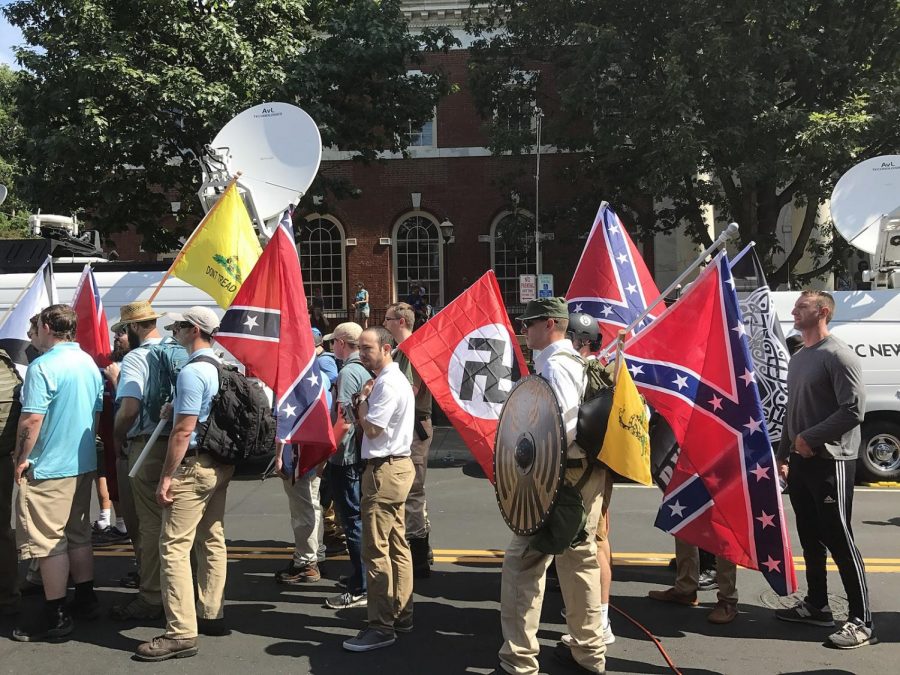The Dangers of Free Hate Speech
“Unite the Right” rally in Charlottesville.
November 16, 2018
Hate speech has always been prolific in American society. But the recent willingness of prominent figures to unabashedly engage in hateful rhetoric has made it increasingly acceptable.
Many argue against the condemnation of hate speech, positing that everyone should be allowed to say how they feel without censorship. Even with the First Amendment right protecting freedom of speech in mind, the inherent dangers of propagating false negative ideas about a person or group of people cannot be ignored.
Whether or not hate speech is protected under the First Amendment is a hotly debated topic. Many scholars argue all hate speech is protected under the Constitution unless it is speech that incites violence or results in harm to a person or groups of people.
With that being said, there’s no shortage of examples of the deadly consequences hate speech can inflict on a society. In the recent attack on a Pittsburgh synagogue where 11 people were killed, the gunman was motivated by an irrational fear and hatred of Jews, undoubtedly linked to the negative rhetoric against minorities in this country.
In the weeks leading up to the shooting, he posted a slew of anti-semitic remarks on social media. He also claimed Jews were helping the migrant caravans heading towards the US-Mexico border, and he wanted all Jews to “die.”
Once an environment is created where it is acceptable to make disparaging remarks about others, hate will slither closer and closer to becoming a societal norm. The negative and erroneous things said about various groups of people will become ingrained in millions of minds, playing on people’s fears and insecurities and feeding into preconceived notions.
It is impossible to live in a society and not be affected by its dominant ideals. Many people will internalize this negative rhetoric, and it will inevitably affect the way they treat others around them. And when hatred continues to go unchecked, our worst nightmares become our horrifying reality.
A recent article in the New York Times by Richard A. Friedman discussed the adverse effects a consistent stream of hate can have on the brain. Friedman cites a study published in the Proceedings of the National Academy of Sciences of the United States of America (PNAS) that showed “threatening language can directly activate the amygdala [the area of the brain that processes threat].” He further explained hearing hateful language “…makes it hard for people to dial down their emotions and think before they act.”
It is also becoming exceedingly difficult to counter the negative and false narratives that continue to permeate our society. The media is constantly, and falsely, made out to be an unreliable news source by the country’s most powerful individuals, further allowing for the insidious denigration of millions of citizens.
We can’t afford to disregard the strong influence words can have over a population. Many prominent figures are aware of this, and manipulate words deliberately to encourage a divisive and contentious environment. We live in a society in which words have the ability to spur unthinkable actions. To deny this fact would mean being complicit in the endangerment of countless lives.




















